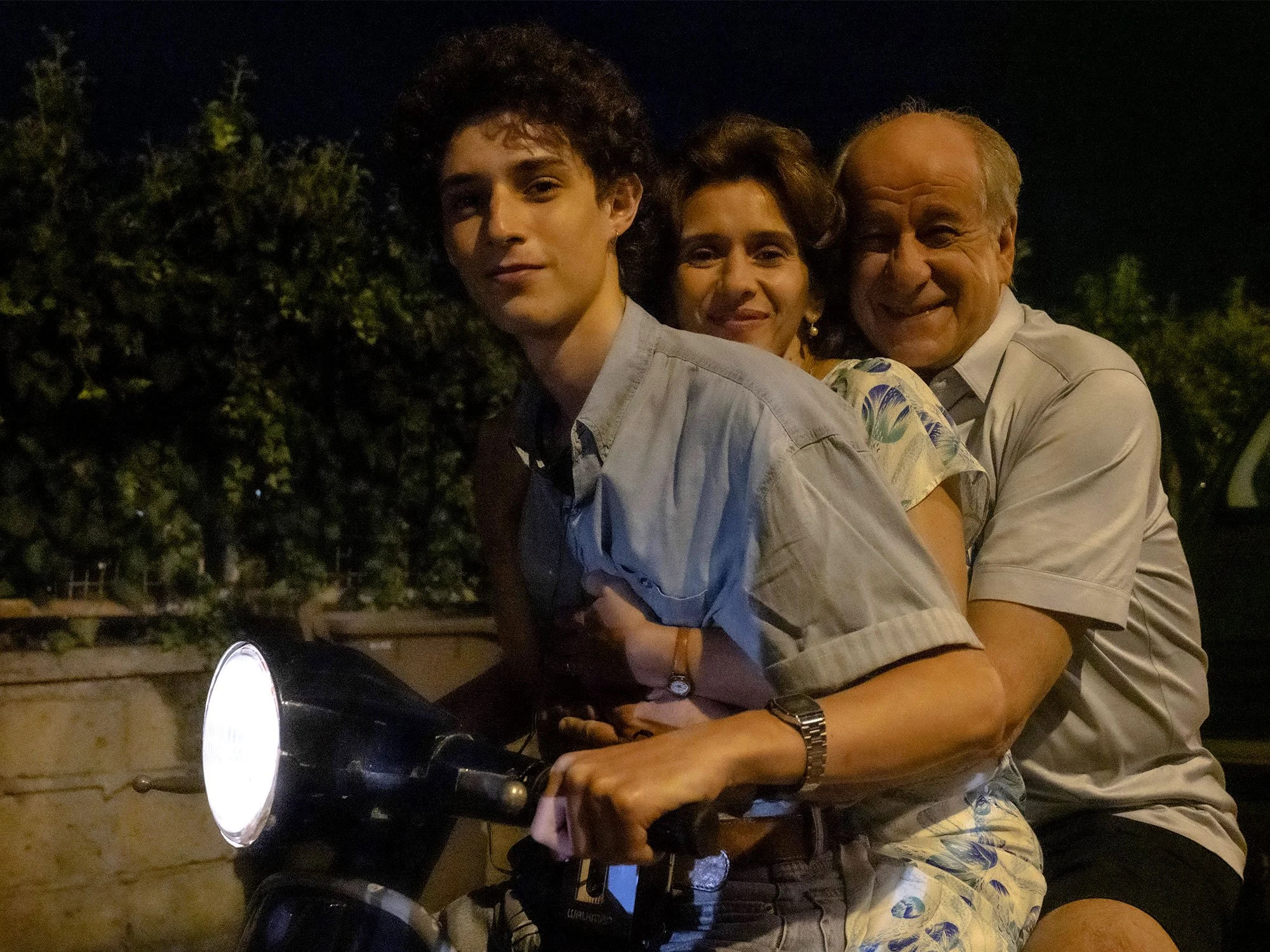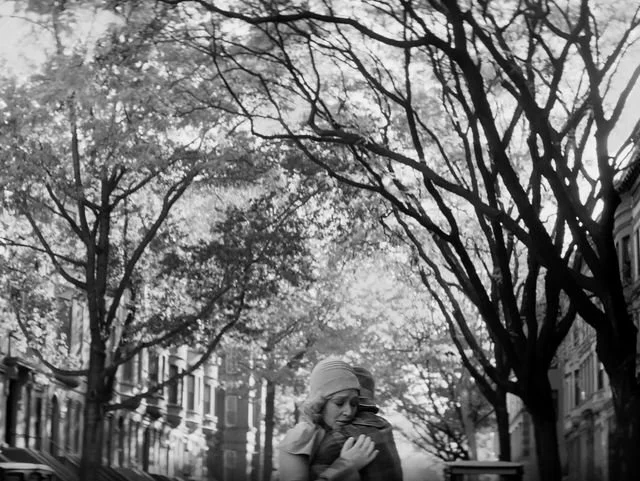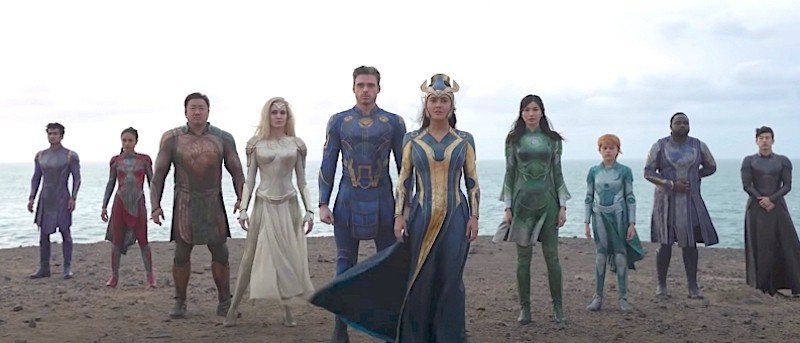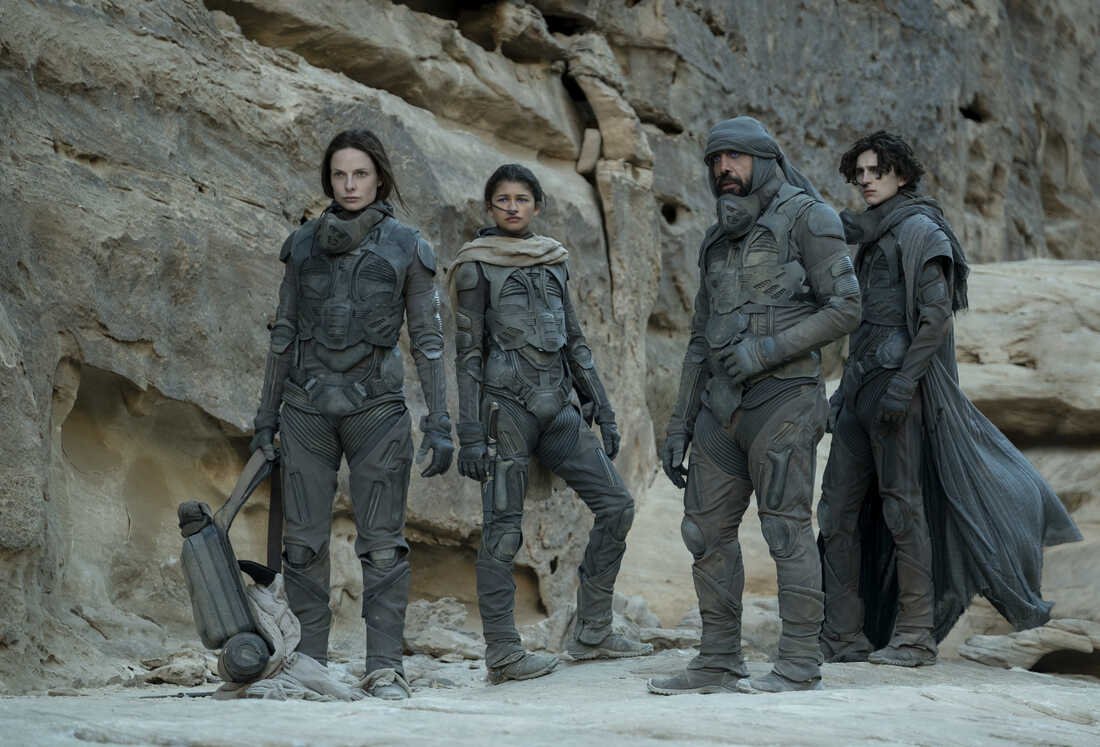THE HAND OF GOD
Directing: B
Acting: B+
Writing: B
Cinematography: B+
Editing: B-
The Hand of God is surprisingly straightforward for a Paolo Sorrentino film, especially compared to his other works in recent years, from The Great Beauty (2013) to Youth (2015) to the HBO miniseries The Young Pope. Sorrentino’s work tends to veer into the realm of fever dream, with widely varying effect. I have a tendency to be drawn to his stylistic flourishes, but to be a bit mystified by the resulting elusive narratives.
This movie, however, if not an outright recreation of Sorrentino’s youth, was reportedly “inspired” by it. His young protagonist, Fabietto (Filippo Scotti), does not share his name, but clearly represents him. It is a matter of public record that Sorrentino’s own parents died in a tragic carbon monoxide poisoning accident when he was seventeen, and this is the pivotal moment for Fabietto in The Hand of God as well.
Both before and after this incident, rather than the more typical stylization—although Sorrentino still takes a few brief stylistic detours, as he evidently can’t help himself—The Hand of God is an exercise in immersion, mostly into Fabietto’s daily life. In the first half or so of the movie, it’s just a pleasantly relaxed immersion into the close-knit world of his extended family. There’s a wide array of characters just as there are in any family, and we see how Fabietto’s parents love each other even in spite of some intermittent marital problems.
Fabietto also has a warm and supportive older brother, Marchino (Marlon Joubert), and they share a room together Marchino is an aspiring actor, and Fabietto an aspiring filmmaker—another of many clear parallels to Sorrentino himself. They have an uncle with a wife named Patrizia (Luisa Ranieri) they both have the hots for, she’s young and beautiful and is the first character we see when the film opens, waiting for a bus in a rather revealing dress. Here is where Sorrentino is characteristically oblique in his approach, as we do not meet Fabietto until he happens to be tagging along with his parents as they come over at Patrizia’s request because her husband is irate irrationally convinced she has been turning tricks as a whore.
This is our entry into Fabietto’s life and family, the opening sequence the closest to the fever-dream quality of Sorrentino’s other work. It has some deeply memorable imagery, such as Patrizia’s tour through a crumbling mansion to see a “little monk,” passing though a huge room with a gigantic, working chandelier standing tilted on the floor rather than hanging from the ceiling.
This is where I struggle with Sorrentino, who has a knack for memorably beautiful visuals but too much of the time I don’t necessarily know what the hell it means, or if I should take it at face value. Such elements are few in The Hand of God—the title a reference to the late, famous Argentinian soccer player Diego Maradona’s goal in the 1986 World Cup. Maradona plays for the team in Fabietto’s hometown of Naples, and he felt he had to be at the game—thought to be the reason he escaped the same fate as his parents.
I did find myself wondering how many of the notable things that happen to Fabietto actually happened to Sorrentino in his youth. There is one particularly bizarre sequence near the end of the film involving his loss of virginity to the old lady “baroness” who lives in the apartment upstairs. This is clearly a callback to an earlier scene in which Fabietto’s father advises him to “take whatever comes" and lose his virginity at the first opportunity, no matter how ugly the girl may be. And then, the one genuine sex scene in this film is between a teenage boy and an elderly woman. Curiously, the way the scene plays out, it’s less gross than it is just plain bizarre. But, on brand for Sorrentino, I suppose.
The Hand of God is available streaming on Netflix on December 15. Maybe you can watch it then and judge for yourself. I saw it as part of an Italian film series by SIFF Cinema, and more than anything I was just thrilled I was finally able to see a movie at The Egyptian again, finally, post-pandemic. The movie itself has its merits, and is more accessible than Sorrentino’s other work tends to be, but that still leaves it more impenetrable than most movies.
A pleasant life careening toward a tragic turn.
Overall: B










